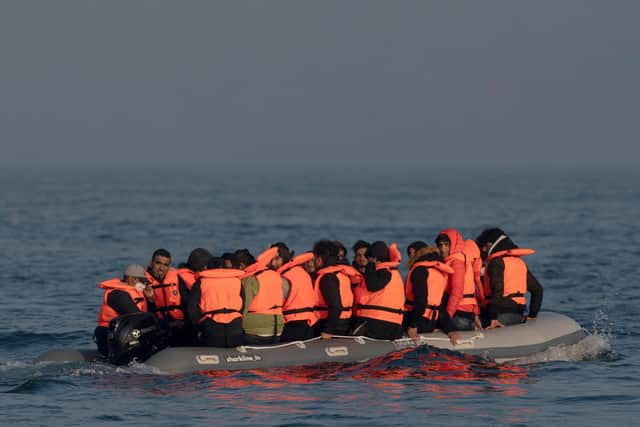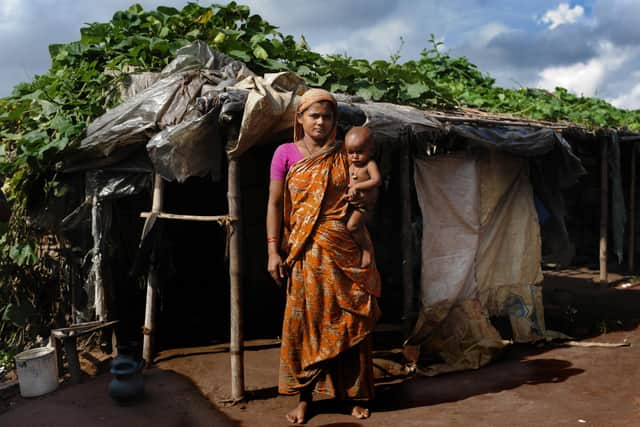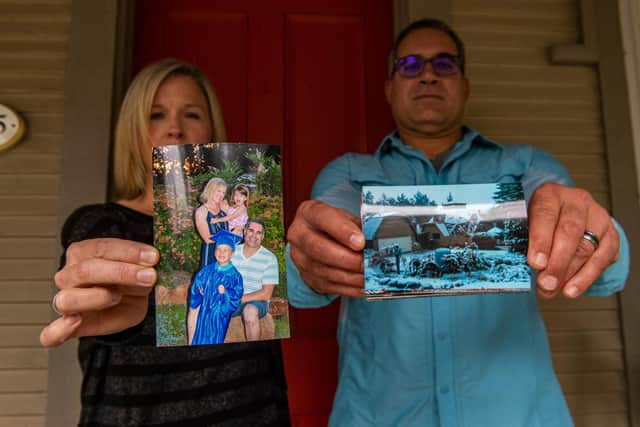COP26: Boris Johnson's distasteful remarks about climate refugees display a lack of humanity and decency – Regina Catrambone
This article contains affiliate links. We may earn a small commission on items purchased through this article, but that does not affect our editorial judgement.
The United Nations’s top climate official Patricia Espinosa has warned of a “catastrophic scenario” in which the impact of climate change will create massive flows of displaced people.
Espinosa’s warning was unusually strongly worded for a senior UN figure. Yet, the reality is that, while worse definitely lies ahead, climate-change-driven migration is already causing catastrophic scenes around the world, as those of us working to bring aid and comfort to those living through such events can testify.
Advertisement
Hide AdAdvertisement
Hide AdIncreasingly extreme weather conditions are driving internal displacement in countries such as Bangladesh where humanitarian organisation Migrant Offshore Aid Station is working alongside the UN and other international NGOs to provide critical support for communities affected by flooding.
In Yemen and Somalia, where we provide aid to vulnerable families, the convergence of climate change and conflict is having devastating effects on people’s lives, as recently highlighted by Robert Mardini, director general of the International Committee of the Red Cross.
The displaced people we work with have already suffered the most terrible harms: children and other loved ones lost to rising waters, fires, famine and violent conflict – even before having to flee their homes and communities. They are survivors from the frontlines of man-made ecological disasters to which we have all contributed.
Which is why UK Prime Minister Boris Johnson’s recent messaging on climate-change-driven migration has been so disturbing.
Speaking in Rome ahead of COP26’s official launch, Mr Johnson used a neat-but-unpleasant analogy that allowed him to show off his classical education while conjuring up demonising images of migrants as destroyers of civilisations.


Attributing the fall of the Roman Empire to “uncontrolled migration”, he said: “The empire could no longer control its borders, people came in from the east, all over the place, and we went into a dark ages, Europe went into a dark ages that lasted a very long time. The point of that is to say it can happen again.”
The claim that migrants from the east could drive Europe into another dark age is exactly the kind of inflammatory and divisive message the world does not need at this time when it is vitally important for countries to act together to address climate change.
Those fleeing climate-change-related disaster and conflict come from all walks of life and, as recent extreme weather events in countries from Canada to Australia have highlighted, it is not solely people from the east who are having to flee their homes. Maps show the predicted impact of rising sea levels on British communities with cities including London at risk. Without urgent global action any one of us could end up a climate migrant.


Advertisement
Hide AdAdvertisement
Hide AdNevertheless, at present, the majority of those driven from their homes by climate-related disasters are economically impoverished people from developing countries, many of which are among the lowest carbon-emitting nations. Poverty and passport status exacerbate the impact of climate change injustice by forcing them to take dangerous routes in search of safety.
As the cofounder of an international non-governmental organisation based in Malta and the UK, which was established to save migrants from drowning at sea, I’ve witnessed first-hand the fatal consequences that can arise when border control is prioritised over human lives. Nobody should have to die at sea because of brutally enforced government policies – but thousands do, including those trying to reach the UK.
In the past week alone at least three migrants are reported to have died at sea trying to make the Channel crossing, while a person from Eritrea was reported to have died after being hit by a train while walking with a group along the tracks close to Calais. A few days previously, a man died after falling overboard into the Channel from a small boat carrying people from Somalia.
It is, of course, impossible to know the specific conditions that drove those individuals to leave their homes and loved ones in the hope of finding safety, only to lose their lives on their desperately dangerous journeys.


However, both Eritrea and Somalia, along with other countries in the Horn of Africa, have experienced years of drought exacerbated by climate change, which the UN warns has provoked not only water and food shortages, but widespread-scale violent conflict in the region. Those fleeing such dangers are escaping the destruction of their own societies, not seeking to destroy those of the countries which offer them refuge.
That is not to say the UK does not have the right to maintain secure borders. Nor is it to deny that climate-change-related displacement does not have the potential to have a truly devastating impact for countries across the world, particularly as the largest numbers of displaced people move within and between low-income nations. The risk of forced migration on a mass scale is all too real, even if COP26 does result in definitive action to address carbon emissions.
That is why it is even more important to establish safe and legal routes. This will help ensure those who lose the most escaping the impact of climate change will not have to unnecessarily also lose their lives because of heartless policies that do not uphold the right to life and the right to seek asylum.
Such policies, however, must respect international law, which the UK’s controversial proposal to create a two-tier asylum plan based on how refugees arrive in the country has been accused of failing to do. If we are all responsible for climate change, we should not turn our backs on those who are already suffering the worst consequences of it.
Advertisement
Hide AdAdvertisement
Hide AdIt is not climate-related forced migration itself that will drive the EU and the UK into another dark ages, but a lack of decent policies, humanity and compassion.
Regina Catrambone is co-founder and director of the Migrant Offshore Aid Station (MOAS)
A message from the Editor:
Thank you for reading this article. We're more reliant on your support than ever as the shift in consumer habits brought about by coronavirus impacts our advertisers.
If you haven't already, please consider supporting our trusted, fact-checked journalism by taking out a digital subscription.
Comments
Want to join the conversation? Please or to comment on this article.
